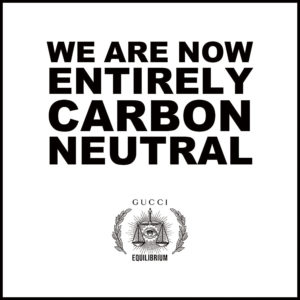The landmark events of 2019 tell us what the future holds. Hopefully, the fashion industry will stop being the second most polluting industry in 2020
AS WE enter a new decade, pause awhile to reflect on the fact that fashion remains the second most polluting industry of all time. For all the things that made a difference in the world of dress design or made a piece of news for that matter, everyone must learn by heart what did not change about it. However, it was indeed a year of wins, misses and learnings for stakeholders around the world.
Let’s map out last year’s headlines around the world, one story at a time.
- Karl Lagerfeld, a connoisseur of sorts for the fashion world, took his last breath in February after a lifetime’s work behind the most iconic brands like Chanel and Fendi. There are founders and then there are those keepers who take a brand to newer heights. That is what Karl did for these brands. The renowned designer and industry icon passed away at the age of 85 after he missed the Chanel Spring Couture Show 2019 due to illness. However, sources at WWD have mentioned that he was working until the end. The man will go down in history as one of the most influential and memorable figures ever to work in the fashion world.

- Going carbon neutral is becoming fashionable and fret not, big brands are going that route. Gucci and its sister companies Saint Laurent, Bottega Veneta, Balenciaga that together make Kering announced their step to go carbon-neutral. Climate Change is caused by releasing gases like carbon into the atmosphere through pollution, of which the fashion industry is one of the most significant contributors. So a brand becoming carbon neutral is the best thing it can do. On paper, yes. But in reality, it is a bumpy ride and it isn’t as simple as some brands make it look like it.
- On a different note, your go-to fast fashion Forever 21 brand filed for bankruptcy. This came as a shock to those who make weekly visits to their stores to stock up on fast merchandise. The fashion activists are secretly giggling after hearing this news. The fact is, fast fashion was never healthy for people and the planet. The big pile of discarded clothing is only getting bigger and there is no taker of it. The retailer’s rapid expansion internationally took a toll on the company. This further contributed to its decision to file for bankruptcy protection in September, at the time the brand had about 800 stores worldwide. Analysts also say Forever 21 failed to understand some of the markets outside of America as it opened more shops in places such as China and London. Whereas at its peak, F21 was bringing in more than $4 billion in sales annually. Such news this was!

- The fact that the Swedish Fashion Council cancelled Stockholm Fashion Week was celebrated around the world by everyone who cares or has any idea how the system affects people and the planet in the ways that it does. This happened at the time when many fashion week organisers were going haywire about increasing the number of their annual shows. This news gave significant stakeholders around the world, food for thought and proposed to create a new format for the industry instead of having a standard fashion week. A step like this one coming from a Nordic country is not something that surprised anyone. Let us say they know better what went wrong and when with the world. According to Jennie Rosén, the CEO at Swedish Fashion Council, this decision of separating from the traditional fashion week model is not an easy one. Putting the past behind and encouraging a platform that brings in sustainability and innovation is what is needed, in her belief for today’s fast fashion industry. Cheers for the Swedes!
- To end this pious list, might we add that rapes continue to happen irrespective of what a girl wears every time she leaves her house. The rape of the doctor from Hyderabad caused much outrage amongst people but that hasn’t changed the norm on a girl’s freedom to choose her dress every day. No one is being spared.





